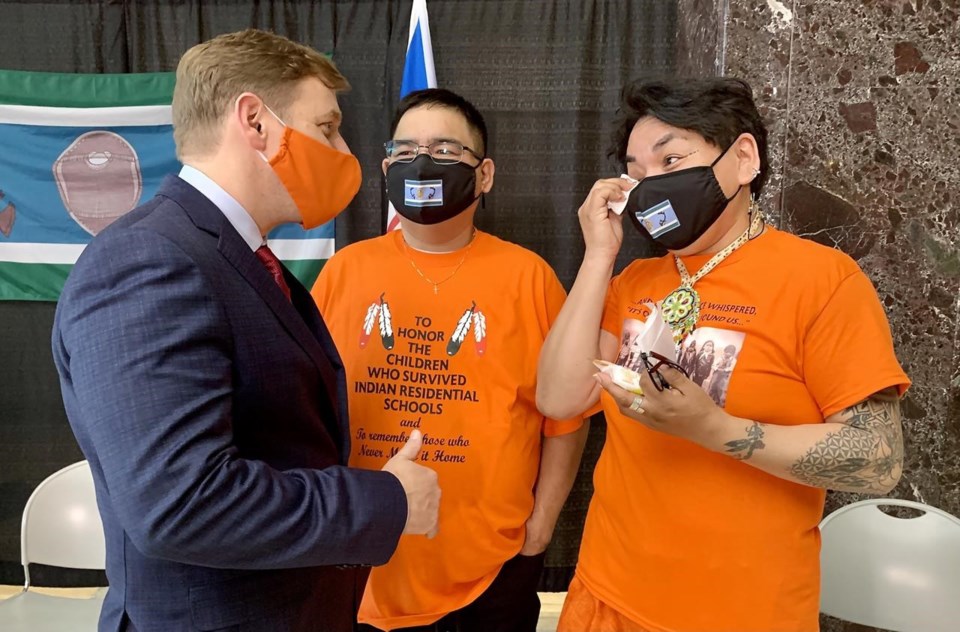SHESHATSHIU, N.L. — After a wait of almost six years, an inquiry into the treatment of Innu youth in provincial government care began Monday with a message of hope from a respected elder.
Elizabeth Penashue, 78, led a prayer to open the inquiry in Sheshatshiu, N.L., one of two Innu communities in Labrador. She then told the small crowd gathered that she was happy the inquiry had finally begun.
"For a long time, Innu have suffered," Penashue said.
The Inquiry into the Treatment, Experiences and Outcomes of Innu in the Child Protection System will include two weeks of hearings about Innu history in the province and the systemic barriers they face. It will also investigate several cases of Innu children who died in the care of the Newfoundland and Labrador government.
The inquiry was promised in 2017, when Dwight Ball's Liberal government signed an agreement with the Innu Nation to examine how Innu children fared in provincial care and the impact on Innu communities. Calls to get on with the process ramped up in 2020 after 15-year-old Wally Rich, an Innu boy, died by suicide while living in a group home in Happy Valley-Goose Bay, N.L.
Commissioner Anastasia Qupee said Monday that many of the testimonies will be difficult to hear.
"We see in our communities what the child protection system has done to us. We see it in our children," said Qupee, who is a former grand chief of the Innu Nation. "This will be a start to work on our healing."
Qupee will be joined by co-commissioner Mike Devine, a retired associate professor of social work at Memorial University, and chief commissioner James Igloliorte, a retired provincial court judge.
"Innu themselves and the governments recognize that care of children should belong to your community," Igloliorte said. "Our job as commissioners is to help you along that path."
Innu leaders have said there are deep connections between the residential school system and the child protection system.
Statistics show Indigenous children are overrepresented in Newfoundland and Labrador's foster-care system, as is the case in the rest of Canada. More than 36 per cent of children in foster care in the province were Indigenous in 2021, while just nine per cent of the province's population was Indigenous, according to the latest census data. There are no figures specific to Innu youth.
The Innu Nation's website says it has about 3,200 members in Labrador, most of whom live in Sheshatshiu, about 40 kilometres north of Happy Valley-Goose Bay, and in Natuashish, which sits along Labrador's north coast.
This report by The Canadian Press was first published Feb. 13, 2023.
The Canadian Press



